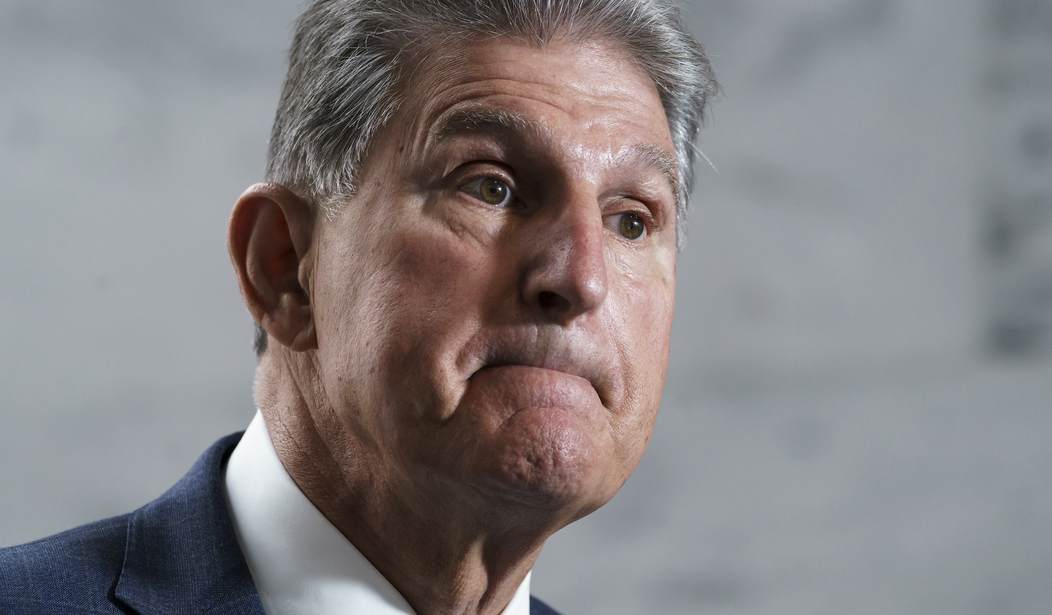Inflation has now climbed to a 40-year high of 9.1%. The cost of food, energy, and gasoline are soaring. And GDP just contracted for a second consecutive quarter -- the textbook definition of a recession.
Yet Democrats on Capitol Hill are hard at work on a tax-and-spend scheme to fund their ambitious climate agenda at the expense of cash-strapped Americans.
The timing couldn't be worse. A behemoth spending bill deceptively dubbed the Inflation Reduction Act of 2022 emerged at the end of July from closed-door talks between Sen. Joe Manchin (D-WV) and Senate Majority Leader Chuck Schumer (D-NY). Despite an updated title to reflect the current crisis of rising prices, the Manchin-Schumer bill is just the latest version of the failed Build Back Better Act progressive spending binge.
Many of the provisions are a direct lift from BBB. For example, the Inflation Reduction Act includes a $369 billion outlay for climate provisions such as tax credits for electric vehicles and handouts for wind turbine and solar panel manufacturers. That's a boon for those coveting a new Tesla and a boondoggle for those in the renewables business. But as far as inflation goes, it's a menace to society.
To pay for this progressive wish list, Manchin and Schumer have proposed massive tax hikes -- like a proposed 15% corporate minimum tax. While the bill's authors argue that it will only impact large, profitable companies, an analysis by the Congressional Joint Committee on Taxation estimates that 49.7% of American manufacturers will be subject to the tax.
Recommended
Already facing tough competition from overseas and supply chain woes, an increased tax bill may force some American manufacturers to scale back operations and employment, postpone investments, or move operations abroad. So much for the American manufacturing renaissance.
In addition to crippling American businesses, this so-called Inflation Reduction Act fails to accomplish its marquee purpose: getting a handle on rising prices.
The reasoning behind its supposed anti-inflation properties goes something like this: increased revenue from new taxes and drug price controls will reduce the deficit and inflation will decline in turn.
But the correlation between deficit reduction and inflation isn't as direct as Manchin and Schumer claim. What's more, this bill's runaway spending begins in earnest in January 2023, for example on climate and an extension of pandemic-era Obamacare subsidies. But many of its revenue-raisers don't take effect until years later. According to a Penn Wharton study, the Manchin-Schumer Bill would "increase inflation through 2024."
Americans can't afford to suffer two more years of skyrocketing prices on gas, groceries, and housing -- and the diminishing value of the dollars in their retirement accounts.
Seniors, meanwhile, are in for a rude awakening when they realize the bill's drug price controls won't save them a nickel at the pharmacy counter. The "savings" government realizes will go toward the spending on progressive priorities.
In effect, Democrats are cutting Medicare to provide $7500 subsidies for Teslas to couples making as much as $300,000 a year. Meanwhile, the downstream effect of price controls will include a significant reduction in life sciences investment, loss of jobs in the biopharmaceutical industry, and up to a 60% reduction in research and development.
After months of wavering back-and-forth, it's clear that Manchin should have trusted his initial instinct. As he said back in December when he "killed" the original Build Back Better, "If I can't go home and explain to the people of West Virginia, I can't vote for it."
Well guess what? This misbegotten package of tax increases and inflationary new spending is going to require a lot of explaining.
























Join the conversation as a VIP Member